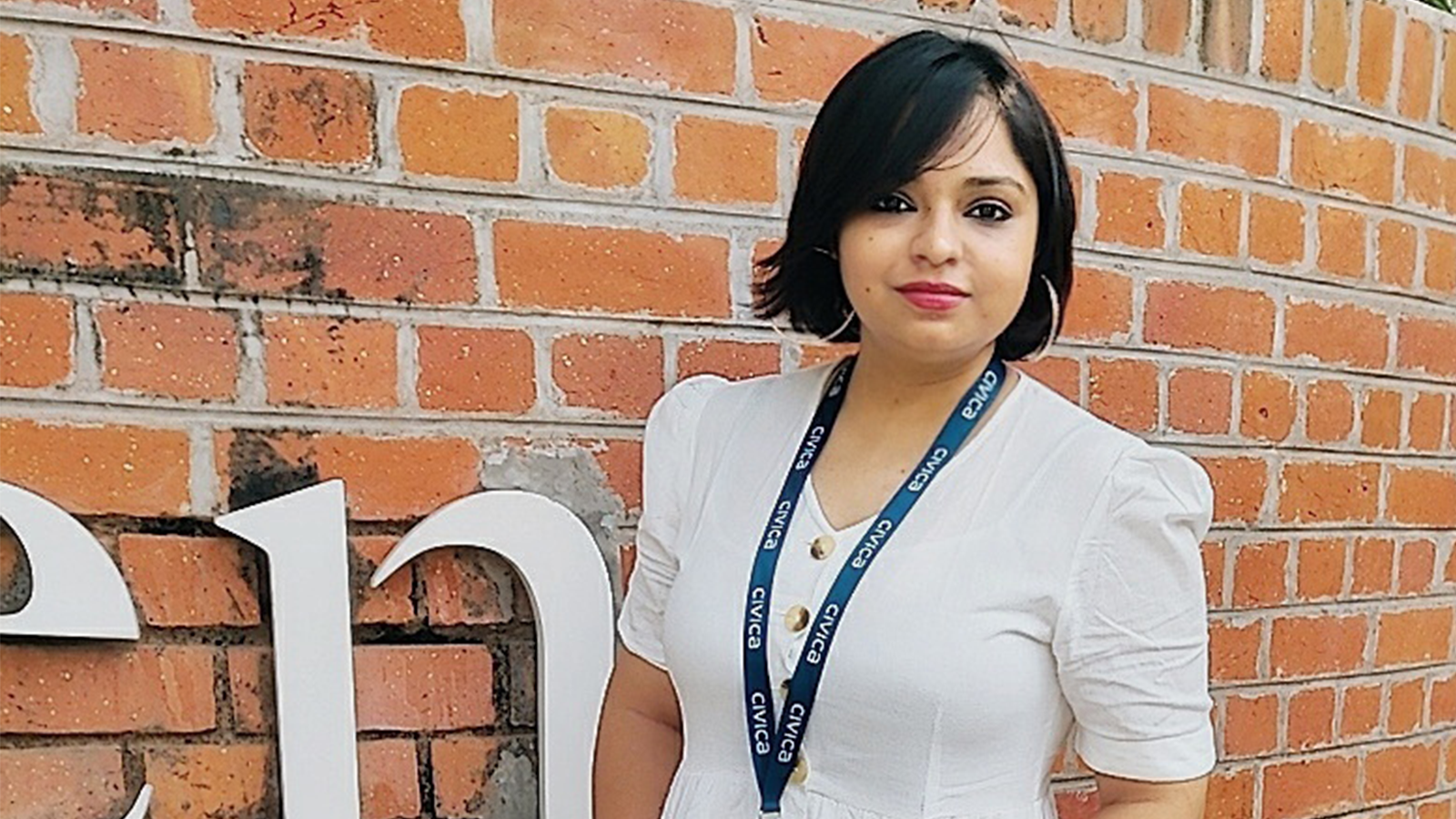Nitya Tak
Business Analyst
Nitya supports her team to understand project requirements and keeps them up to date on best practice, while ensuring that agile related activities are implemented in order to meet targets and build a quality product.

What's it like as a woman working in tech?
It’s empowering and endearing at the same time. It makes me believe that women of today have a pivotal role to play in a field which has and will open so many doors to remarkable discoveries – impacting lives around the world. Our responsibility lies in raising the bar and helping more women participate in this cluster of intelligent ideas.
What or who inspired you to take up a career in tech?
I was raised in a humble and close-knit family, in a not so modern city called Jaipur. We’re a family of 22 people, with just five women and my mother was the only one working in the medical field. She projected such zest and advocacy for being a confident, independent woman. My mother’s attitude always encouraged me to work harder and achieve a place for myself in this world.
She would talk about her experience in the medical field and on some days, she’d tell my father about her training and the skills she’d acquired. That triggered something in me and I started developing an inclination towards science at a very young age.
What’s the most exciting part about your work?
For me, it’s the informative and innovative discussions I have with so many people, who all come from different professional backgrounds. We have a very collaborative culture and I love being able to work with my colleagues and use our imagination to develop something which has a genuine societal impact.
What are your biggest achievements, and what are your biggest failures?
As an electrical engineer by degree, to work as a Business Analyst was a task in itself for me. I started from scratch and faced many hurdles in learning something totally different from what I was used to doing every day. But, with determination and hard work, I managed to not only establish myself as a good BA but also became financially independent from a very early age. Because of this, I managed to buy my own car and a house before I turned 30. And for that I am very proud of myself. So, I wouldn't call it a failure but a lesson learnt.
Having experienced such a positive culture at Civica, my standards are very high. I’ll always make finding a positive working culture a priority. If you’re happy in your work then, from my experience, you’re also more productive and fundamentally, more successful too.
Is there any field of work that should have more scientific attention? Which one?
I think mental health awareness. I believe we need to work towards displaying this genuinely serious issue in a more scientific way, so as to encourage people to come out and never shy away from seeking help. We need to make them believe that going to a therapist or psychiatrist is as important as going to a doctor for a physical wound, pain or surgery. Civica is quite progressive in this way and we have several initiatives to support our colleagues’ mental health in the workplace.
Any advice for the next generation of women in science?
I’m quickly approaching a decade of work in a career I love. I’ve learnt so much in that time, but one thing stands out: believing in one’s own capability shines a light on the potential we did not know we possessed. No matter how bad things get, we may take more time than others to excel or to learn. But, by working hard and giving your all, no matter how many steps it takes; you are firmly on the path to success. Never doubt your power to change and always be open to feedback to be better.